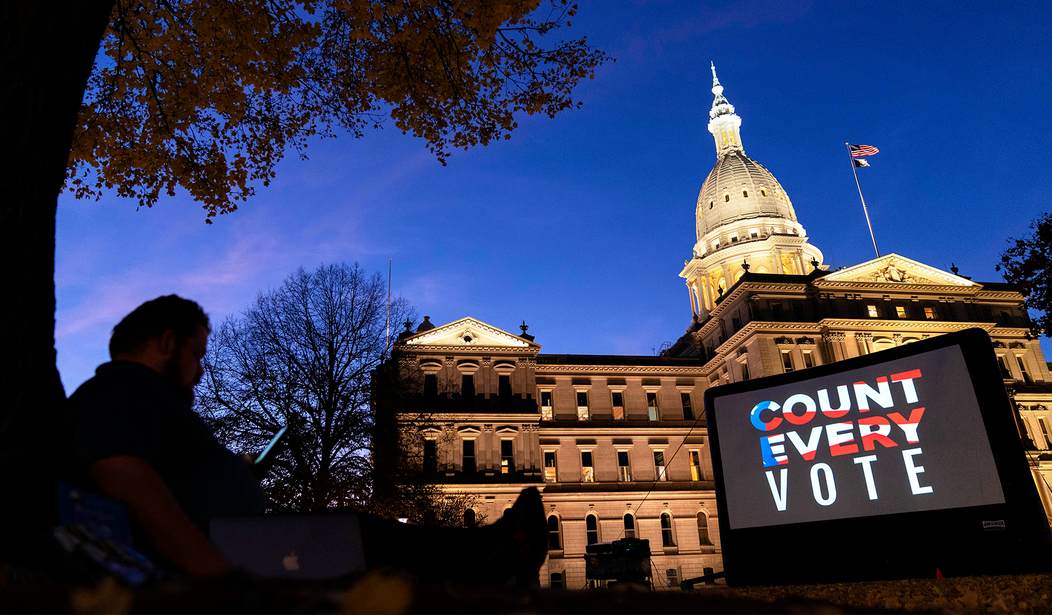The Cybersecurity and Infrastructure Security Agency (CISA) knew mail-in and absentee voting was a risk and less secure than in-person voting despite censoring criticism ahead of the 2020 election.
In newly obtained documents via an open records request by America First Legal(AFL), the CISA admitted it was well aware of the risks associated with mail-in voting months leading up to the election between President Joe Biden and former President Trump. However, they continued to flag and censor social media posts as “disinformation” to anyone who questioned the election's legitimacy.
Per ALF’s documents:
CISA knew mail-in and absentee voting are less secure than in-person (i.e., verified voting) voting, confirming warnings by former President Trump and others of increased fraud, and shared these concerns with mainstream media outlets during an unclassified “media tour” the Friday before the 2020 election. However, the mainstream media covered up the truth, having derided the notion that “vote by mail” was less secure than in-person voting.
CISA knew there was no credible evidence to support the claim that in-person voting would spread COVID-19. Yet, it covered up the truth and supported mass vote-by-mail schemes.
CISA relied upon Deloitte, an accounting and consulting firm, to gather disinformation “narratives” regarding vote-by-mail across social media for the purpose of monitoring and censorship.
The documents also reveal that by September 2020, two months before election day, CISA was aware that in-person voting did not spread COVID-19. They also knew that “vote-by-mail” strategies held “major challenges,” including “the process of mailing and returning ballots,” the “high numbers of improperly completed ballots (figures not yet released),” and “the shortage of personnel to process ballots in a prompt manner.”
Recommended
- “Links to a newer study that could not conclude that voting in April primary increased the spread of Covid, refuting an earlier study,” the document read.
- At the time, CISA created a chart describing six examples of “mail-in voting risk,” as listed out by the AFL.
- “Implementation of mail-in voting infrastructure and processes within a compressed timeline may also introduce new risk.”
- “For mail-in voting, some of the risk under the control of election officials during in-person voting shifts to outside entities, such as ballot printers, mail processing facilities, and the United States Postal Service.”
- “Integrity attacks on voter registration data and systems represent a comparatively higher risk in a mail-in voting environment when compared to an in-person voting environment.”
- “The outbound and inbound processing of mail-in ballots introduces additional infrastructure and technology, increasing potential scalability of cyber attacks.”
- “Inbound mail-in ballot processes and tabulation take longer than in-person processing, causing tabulation of results to occur more slowly and resulting in more ballots to tabulate following election night.”
- “Disinformation risk to mail-in voting infrastructure and processes is similar to that of in-person voting while utilizing different content. Threat actors may leverage limited understanding regarding mail-in voting processes to mislead and confuse the public.”
Left-leaning outlets ignored the risks of not voting in person despite having no evidence it was unsafe. Instead, CISA Director Chris Kreb made “statements about the security of mail-in ballots” that “directly contradict” those argued by Trump.
During an interview with Tucker Carlson, cybersecurity expert Mike Benz asserted that the CISA, a branch of Homeland Security, and other government-funded agencies censored the public before the 2020 election.
“You could literally be on your toilet seat at 9:30 on a Thursday night and tweet, ‘I think that mail-in ballots are illegitimate.’ And you were essentially then caught up in the crosshairs of the Department of Homeland Security classifying you as conducting a cyber attack on US critical infrastructure because you were doing ‘misinformation’ online in the cyber realm,” he said.

























Join the conversation as a VIP Member